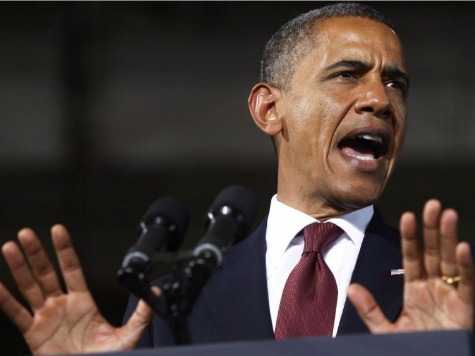
American public opinion is split on the question of Western military intervention in Syria. Most Americans don’t have a clue what’s going on, and would not be able to distinguish between “Syria” and “cereal.”
Among those who are aware of what’s going on, both Democrats and Republicans are split on whether or not to militarily intervene. Europe is also split, with Britain and France favoring intervention, and other countries, led by Austria, strongly opposing it.
Public opinion in the Arab world is also split, sharply along Sunni versus Shia lines. The Shia terrorist group Hezbollah, supported by Iran and Russia, are warning the West to stay out, even as they continue to supply weapons to the regime of Syria’s psychopathic president Bashar al-Assad.
Sunni Arab public opinion is highly critical of the West for allowing tens of thousands of innocent Arabs to be slaughtered and hundreds of thousands to be driven from their homes, and much of the criticism is highly personal, directed at President Barack Obama.
In particular, many Arabs see the agreement between the U.S. and Russia to hold another international conference as just one more sign of American weakness, giving in to Russia’s demands and giving al-Assad more time to kill innocent Arab women and children in their beds. According to one Saudi Arabian columnist Mashari Al-Zaydi:
The problem of U.S. President Barack Obama can be summed up in a single word: hesitation. The man is short-sighted, confused and diffident. It seems that the gist of his policy is disagreeing with every position of his predecessor, George W. Bush, and that is quarrelsomeness, not policy.
This assessment of Obama’s policy is not voiced only by his Republican rivals in the U.S., or by those who hate some [aspects] of his global [foreign] policy, but also by some proponents of his own school of thought, like the well-known American author David Ignatius, who recently wrote a critique of the Obama administration’s policy that was not confined to foreign [policy] affairs… Summarizing the problematic aspects of Obama’s conduct, he said that the public is more afraid of a weak administration than a strong one!
We are not talking [only] about harsh critics of this administration, inside or outside the U.S. This is apparent from a recent article by Lebanese-American writer Fuad ‘Ajami, who slammed Obama for his feebleness, his lack of leadership, and his inability to take bold decisions under difficult circumstances, especially when it comes to his position on the Syrian catastrophe. Nor is it only Republicans who attack [Obama]. [Criticism is also voiced] by people who were overjoyed by the arrival [in the White House] of a black Harvard graduate with African and Islamic roots, the son of Hussein Obama. [They expected him] to have a better understanding of the Islamic and Arab societies and their nature. But eventually, as the helplessness of the international community [to address the situation] in Syria increased due to the [conduct of] the U.S. and Obama, it became apparent that this man is unable to lead and that he hides his failure and ignorance behind a lot of hypothetical talk about red, green and purple lines…”
I agree with those who claim that American and Western intervention two years ago had a good chance of bringing the horrific battle to an early end. But we have to recognize that the same Saudi writers who were critical of America’s intervention in Iraq are now critical of America for NOT intervening in Syria. America’s role as policemen of the world is not an easy one.

COMMENTS
Please let us know if you're having issues with commenting.